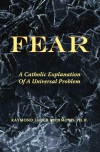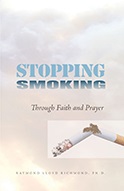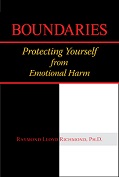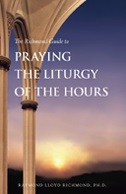
It is
obvious that we live in very sinful times and are bombarded with encountering
people with no knowledge or with antipathy of the teachings of Christ and
His Church. Now, during my social interaction with others, when am
I bound, under pain of mortal sin, to admonish sinners, correct them, and
tell them that this or that is wrong in the eyes of God? I don’t know
if I am just a wimp with no thick skin when I fail to correct them and tell
them the truth or not. Say for instance at my . . .
job, my boss or co-worker takes the name of the Lord in vain habitually or
speaks of impure stories as if they are innocent and inconsequential. Am
I bound, under pain of mortal sin, to break into the conversation and correct
them or not? It is frustrating to not know what to do—I am almost totally
pre-occupied with such moral questions . . . Should
I give in to human respect for the time being and not say anything and go
“along with the crowd” but at the same time make a mental note
to speak up at a more appropriate time? Or am I bound to speak up right at
that moment without hesitation no matter how inconvenient or awkward? Also,
can I speak of stories in which I was drunk at the time or stoned without
offending God—though the story is centering around what happened and
not the sinful state of mind I put myself in? (By the way is it a mortal
sin to laugh at conversation or jokes about drunkenness or
impurity?) . . . Am I a victim of erroneous conscience
or a weakling who has failed to trust in Jesus?
 |
 artyr. What comes to mind when
you think of that word? Early Christians killed under Roman persecution?
Missionaries put to a brutal death in hostile, heathen countries? Yet what
about today? Where have all the martyrs gone? artyr. What comes to mind when
you think of that word? Early Christians killed under Roman persecution?
Missionaries put to a brutal death in hostile, heathen countries? Yet what
about today? Where have all the martyrs gone?
Well, it is true that in the
modern world many persons would not sacrifice even their TVs, let alone their
lives, for the sake of Christ.
Still, even though many so-called
Christians today have compromised the true faith,
some genuine Christians continue to defend the faith. The word martyr
is actually the Greek word for witness, and so anyone who witnesses
the faith is technically a martyr. Moreover, you do not have to be killed
to be a martyr; you can be martyred by love. That is, you can, like Saint
Paul, so love Christ that you lose an interest in everything but the message
of holy love that Christ brought us.
Let’s see, then, how all
Christians are called to be martyrs of love.
Preaching, Teaching,
and Witnessing
If you have been ordained to
the priesthood or diaconate and have the right to preach, or, if you have
some other teaching ministry (e.g., teacher, catechist, counselor), then
you can use your intellectual skills to
tell others how to go about living their
lives in full Christian love.
Also, every Christian has an
obligation—without fear of being
judgmental—to
point out errors in love to others to
whom he or she has some acquaintance. That is, it wouldn’t be advisable
to walk up to strangers on the street and tell them that their
tattoos are a defilement of the
body and a grave offense to God. But you could
say this to a friend.
Witnessing
the faith is another Christian responsibility. It’s something different
from teaching; it also has nothing to do with telling others how to
act.[1]
To witness the faith you show others, through your own personal example,
how to live a faithful life of love.
Witnessing the faith is also
a responsibility that many Christians take too lightly, if they take it at
all.
Elements of
Witnessing the Faith
Witnessing the faith is really
a simple process; that is, it does not depend on intellectual and philosophical
sophistication. It requires only that you live a life of true love in every
moment, as Christ told us to live. Because assaults from the anti-Christian
world around us can tempt us to defile love, the two
essential elements of our witnessing the faith can be expressed according
to what we refuse to do, regardless of what anyone does to
us : :
• |
Refuse to compromise the true
faith. |
|
• |
Refuse to
hate anyone. |
|
|
Martyrs proclaim
their refusal to hate, for in blessing even those who persecute them they
keep open the hope that the persecutors may repent their mistakes. And this
explains why no one who is killed for his or her political opposition to
rivals, who is killed in the act of killing others, or who commits
suicide—by itself or in the course of killing others—can be a martyr,
for all these acts psychologically foreclose all possibility of forgiveness
and healing. |
|
A Quiet Refusal,
Not a Public Protest
Even though we have an obligation
to respect civil authority, there are limits to this respect. The Catechism
of the Catholic Church makes this perfectly clear: “The citizen is
obligated in conscience not to follow the directives of civil authorities when
they are contrary to the demands of the moral order, to the fundamental rights
of persons, or the teachings of the Gospel” (§ 2242).
This philosophy has its support
from the Old Testament. For example, in the book
of Esther we have the story of Mordecai who refused to kneel and bow
down to a king’s servant. In the book of Daniel we have the story
of Shadrach, Meshach, and Abednego who were thrown into a fiery furnace for
refusing to worship the golden statue that Nebuchadnezzar had made (Daniel
3:1–97). In the same book we also have the story of Daniel himself who
was thrown into a lion’s den for refusing to follow a law prohibiting
prayer to any god or man except the king (Daniel 6:1–29). In the book
of Maccabees we have the story of the martyrdom of a mother and her
sons for refusing to eat pork in violation of God’s law (2 Maccabees
7:1–42).
Moreover, we have the stories
of countless Christian martyrs. It began with Christians who refused to worship
the Roman emperor, and it has continued through the centuries with those
who suffered persecution and death rather than betray their
faith.
|
Notice that the
directive here is not to protest laws contrary
to the faith but to refuse to follow any such laws imposed on us
personally.
The Catechism
of the Catholic Church makes no mention of the price of such refusal,
but Scripture makes it perfectly clear what that price can be: persecution
even unto death. |
|
The Real
Battle
Every Christian has taken baptismal
vows to renounce Satan, to
turn away from evil and sin,
and to turn to Christ in chaste and holy service.
Therefore, every Christian, in everything he or she does—no matter whether
trivial or important—has an obligation to be a good and holy representative
of the Church to all of society. That’s a serious
responsibility.
|
The real battle
of life is between Satan and your soul, not between
you and other persons. Have no doubts that Satan will tempt you through
others in every way he can, to induce you to lose your
patience, to fall into
hatred, or to defile
chastity. And God will allow him to tempt you,
as a way of strengthening and purifying your soul. The wicked are not here
for us to eradicate them; they are here to help us become saints, and in
the process, maybe to convert some of them. |
|
So no matter how others bait
you, your responsibility is to act always in total imitation of Christ, as
a faithful and fruitful representative
of the Church. If you fail in this, then the enemies of the Church will just
sneer, and say, “See? Those Catholics are all just a bunch of
hypocrites.” You will be labeled a fanatic
and fall into ruin, and your enemies will be strengthened. Thus everyone
will lose.
But, before you fly into a panic
of scruples, it will help to understand something
about psychology here.
The Psychology
of Responsibility
Consider this fundamental axiom
in psychology: It’s nearly impossible for you to change the behavior
of anyone other than
 yourself. yourself.
Children in
dysfunctional families, for example, feel
the intense urge to want to fix the family, such as by changing the behavior
of their father or mother (e.g., stopping one of them from being an
alcoholic). But, being children and lacking an
understanding of the fundamental axiom in psychology, many of these children
will feel frustrated at their failure to fix their parents; having no way
to cope with feelings of intense helplessness, they
end up blaming themselves—and often
blaming God—that they have not been able to
stop their father’s or mother’s irresponsible and self-destructive
behavior.
And so these poor
lost children grow up to find their lives
stained with emotional and interpersonal instability, stained with confusion
about their purpose in life, and stained with
depression—with unconscious
anger at the core of it all.
Therefore, understanding basic
psychology, all you can do is take responsibility for your own
behavior.
Taking Responsibility
for Your Own Behavior
If a co-worker uses foul language
on the job, then say, “I can’t listen to this kind of talk.”
Then walk away.
|
If you know the
person well enough to know that you will be harrassed for your beliefs, then
just leave without saying anything. |
|
If a friend or family member
invites you to watch a movie (perhaps insisting you watch it, even after
you have explained that you don’t like to watch movies) and something
offensive to Christian morality (e.g., foul language, a sexual scene, violence,
etc.) appears, say, “I can’t watch this sort of thing.” Then stand
up and leave the room.
If you’re in a car and someone
starts smoking marijuana, say, “I can’t participate in this sort
of thing.” Oops . . . what if the car is moving and the driver refuses
to stop? Well, just fling open the door and act like you are willing to jump
out, and the driver will bring the car to a screeching halt in no time. Then
get out.
If anyone does
anything that contradicts the faith, then refuse to go along, regardless
of the cost. Walk away. Take your money elsewhere. Resign your
position.[2]
Allow yourself to get fired. What profit will it be if you gain the world
and lose your soul?
|
Remember, in
showing to others what a pure Christian
life-style is all about, your consistent behavior might just influence a
few to examine their lives and, ultimately, to repent their sins. |
|
Explaining
Yourself
After all the uproar dies down,
and if circumstances allow, then you can start to explain your
behavior.
Now, in the course of your explaining
yourself you might tell stories about your past sins as illustration.
That’s fine. But if you tell the story for the sake of humor, you run
the risk of leading others into sin, and that’s scandal (see
below). Laughing at impure jokes or conversation does
only one thing: it encourages the behavior. And if the impurity is about
grave matter, then the scandal becomes mortal
sin.
Summary
Needless to say, after you start
witnessing the Gospel as you should, you might not have many
friends left. You might even lose your job. So
listen to what Christ said:
|
Blessed are they
who are persecuted for the sake of righteousness, for theirs is the Kingdom
of Heaven. |
|
|
—Matthew
5-10 |
|
Christ has few friends today. So if
you are going to profess to be His friend, be a good friend.

What the
Catechism of the Catholic Church says:
2471 Before
Pilate, Christ proclaims that he “has come into the world, to bear witness
to the truth.” The Christian is not to “be ashamed then of testifying
to our Lord.” In situations that require witness to the faith, the Christian
must profess it without equivocation, after the example of St. Paul before
his judges. We must keep “a clear conscience toward God and toward
men.”
2472 The
duty of Christians to take part in the life of the Church impels them to
act as witnesses of the Gospel and of the obligations that flow from
it. This witness is a transmission of the faith in words and deeds. Witness
is an act of justice that establishes the truth or makes it known.
All Christians by
the example of their lives and the witness of their word, wherever they live,
have an obligation to manifest the new man which they have put on in Baptism
and to reveal the power of the Holy Spirit by whom they were strengthened
at Confirmation.
2284 Scandal
is an attitude or behavior which leads another to do evil. The person who
gives scandal becomes his neighbor’s tempter. He damages virtue and
integrity; he may even draw his brother into spiritual death. Scandal is
a grave offense if by deed or omission another is deliberately led into a
grave offense.
2287 Anyone
who uses the power at his disposal in such a way that it leads others to
do wrong becomes guilty of scandal and responsible for the evil that he has
directly or indirectly encouraged. “Temptations to sin are sure to come;
but woe to him by whom they come!” (Luke 17:1).

Notes.
1. Being agrumentative or accusatory, or demanding
that others change their behavior will only drive them deeper into their
behavior and may provoke hostility. Moreover, it will cause you stress, along
with physiological complications such as high blood pressure, when others
refuse to do what you want them to do. Also, the obstinacy of others will
be a wound to your pride, and that can drive
you right into the snares of hatred and
spiritual murder. So when you need to
speak up to someone about an offense, speak from the place of your
sorrow for what that person has done,
not from your indignation about how you have been hurt.
2. Note that, in contrast to witnessing the faith in a social setting,
witnessing the faith in a family calls for
special patience and gentleness. Keep
in mind here that a Christian wife or husband has been bound to his or her
spouse by sacramental vows, so walking away from the family because of
persecution for the faith would amount to abandoning the family and running
from the Cross. Moreover, even though actual violence in the family may require
police intervention or temporary separation, violence is usually the result
of some kind of subtle provocation. It can be difficult for an investigator
to get to the truth here because each person will tell his or her side of
the story with bias toward the self. In this case, only honest and humble
scrutiny on the part of the person being threatened
will reveal the depths of mutual culpability.


Healing
|
Though
Demons
Gloat
|
Anger
&
Forgiveness
|
Falling
Families,
Fallen Children
|
Disasters
and
trauma
|
Psychology
from the
Heart
|
 |
 |
 |
 |
 |
 |
Psychological Healing
in the Catholic Mystic tradition |
True Christian
Identity
In Confronting
Evil |
How to Turn the
Emotional Wounds
of Daily Life Into
Psychological Growth. |
The Psychological
and
Spiritual Remedy
For Our Cultural
Disintegration |
The Struggle For
Psychological
and Spiritual
Growth |
Collected Texts
About the Spiritual Depth of
Clinical Psychology |
More information |
More information |
More information |
More information |
More information |
More information |
Desire
and
Distraction
|
Fear
|
Stopping
Smoking
|
Borderline
Personality
Disorder
|
Catholic
Compassion
|
 |
 |
 |
 |
 |
A Catholic Perspective
On Behavioral Change
and Its Subversion |
A Catholic Explanation
Of a Universal
Problem |
Through
Faith
and
Prayer |
Healing
the
Rage |
When They Tell You
That the Moral Teachings
of the Catholic Church
Are Wrong |
More information |
More information |
More information |
More information |
More information |
|




















